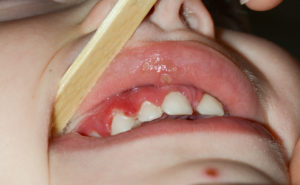
When people have severely damaged or infected teeth, then they will want to remove those teeth with a tooth extraction in Omaha, NE. People can have damaged or infected teeth for many reasons. From injuries to gum disease, these types of damage and infected teeth can make it very hard for people to live their lives normally. Continue reading to learn in more detail about the reasons why people need to have one or more of their teeth extracted.
Why Do I Need A Tooth Extraction In Omaha, NE?
Many people will suffer from gum disease to some degree and most people have had at least one cavity in their lifetime. There isn’t one specific reason that can explain why so many people have gum disease and cavities. But people will end up experiencing tooth decay if their gum disease and cavities are left untreated.
The following are reasons why people have decayed or injured teeth:
Tooth Injury:
People don’t have to be athletes participating in high contact sports to suffer from trauma to their teeth. From car accidents to simply not paying attention to where they are walking, it’s not hard to imagine why a bit of blunt force can send people to a trusted oral surgeon for a tooth extraction.
Tooth Infections:
Tooth infections are yet another common reason for people needing tooth extractions. When people have severe tooth infections, those teeth can start to decay. Decayed teeth may not be healthy or functional enough to remain in the patient’s mouth. While all efforts will be made to save infected teeth, sometimes the best thing to do is to extract them.
The same goes for teeth that have been severely damaged due to accidents or injury. If people with severely decaying or damaged teeth don’t get treated with tooth extractions, then they could end up facing systemic problems in the future.
What Happens During A Tooth Extraction Procedure?
At times, tooth extractions may be necessary to remove injured and infected teeth. Before the tooth extraction procedure is performed, the oral surgeon can administer sedation dentistry to the patient so that they have an anxiety-free and comfortable procedure experience.
During the actual tooth extraction procedure, a CBCT scanner will be used to capture the specific images of the patient’s oral structures to guide the oral surgeon to the exact teeth that need to be extracted. Then, the tooth can be expertly extracted, and the patients oral health can be improved.
What Should I Do After Getting A Tooth Extraction In Omaha, NE?
Tooth extractions, including wisdom tooth removals, are common procedures for oral surgeons to perform. Following their tooth extractions, patients should get treated with dental implants. If extracted teeth are not replaced with dental implants, jawbone density can be lost, and procedures to increase jawbone tissue volume and density will be necessary, such as bone grafting.
Bone grafting can preserve the patients jawbone and prepare them for dental implants. Without bone grafting and a strong jawbone with healthy amounts of bone tissue, restoration efforts will likely be unsuccessful, and jawbone health will be compromised.
After Tooth Extractions, What Types Of Dental Implants Can I Get Treated With?
Following tooth extractions, the dental implant options patients can get treated with include single dental implants, implant supported dentures, and full mouth dental implants. The type of dental implant procedure patients get depends on the number of teeth they are missing and the number of dental implants they need to restore their smile.
See Us Now So We Can Treat You With Tooth Extractions
Are you concerned that you may need to have a tooth extraction? When you come to our knowledgeable and dedicated office, we will determine if you need to have tooth extractions. We will also make sure you replace those extracted teeth with restorative procedures like dental implants.
Why wait to improve the health and function of your smile with us. Get in contact with Dr. John Wewel, Dr. Jerome M. Wees, Dr. Benjamin J. Anderson, Dr. Jason R. May, and our exceptional team at our Midwest Oral Surgery & Dental Implants office to schedule an appointment today!

